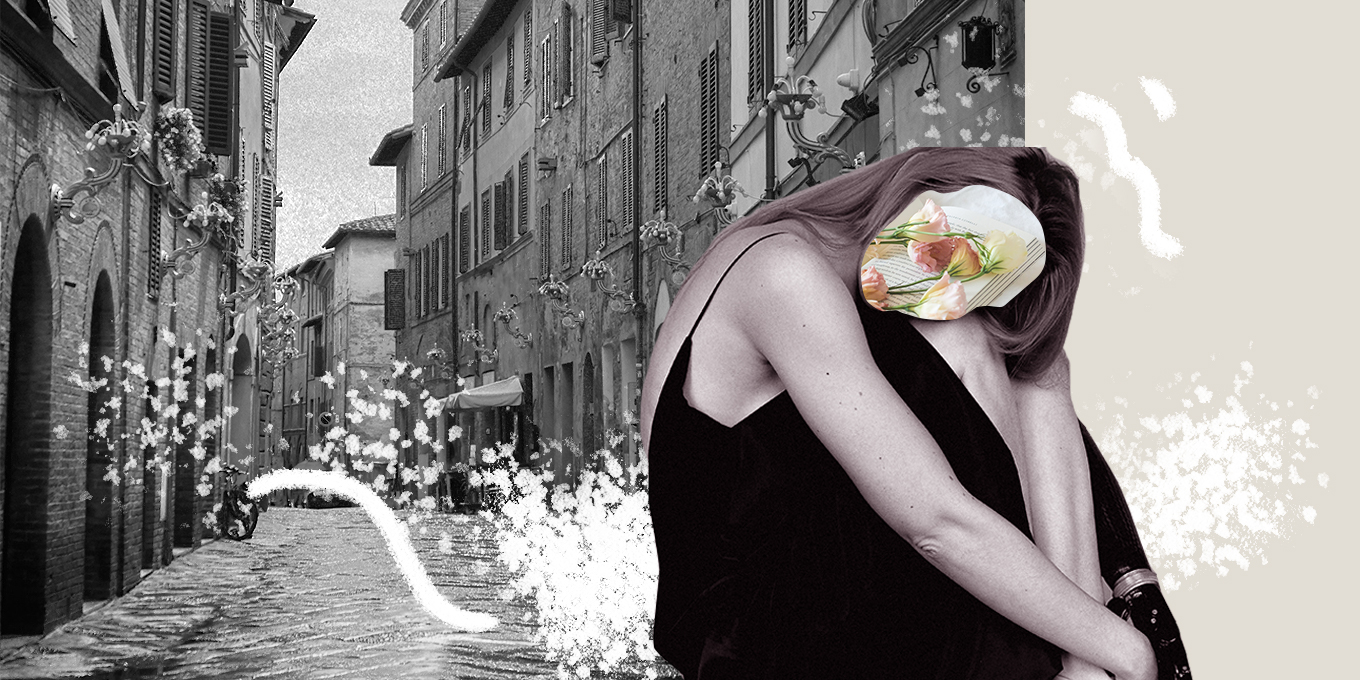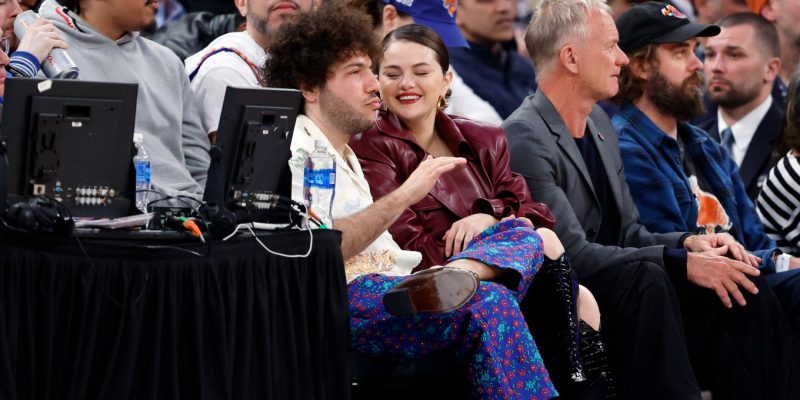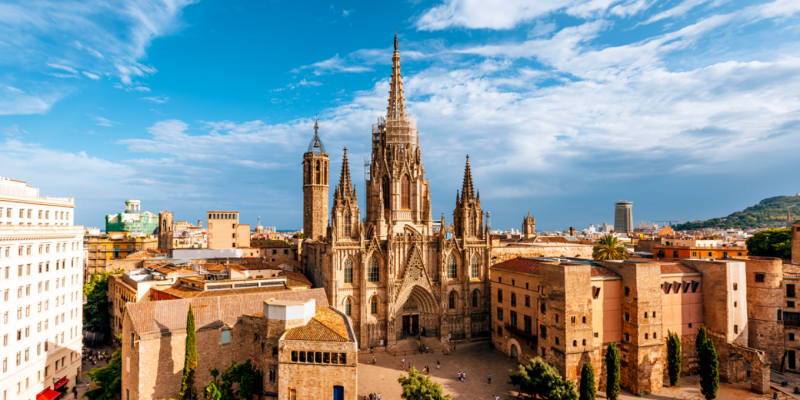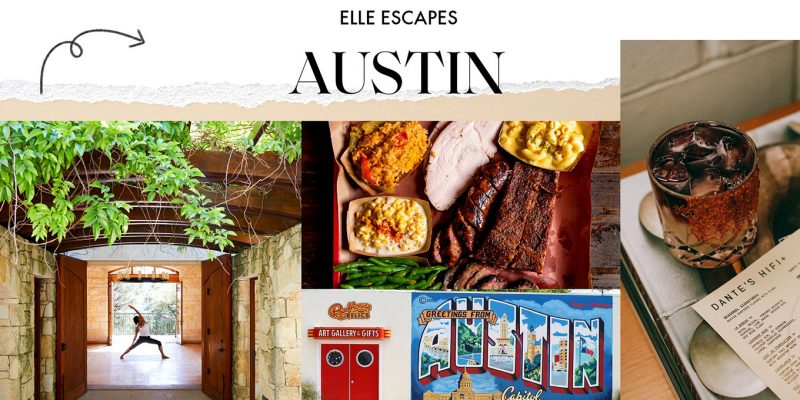Society
What It Was Like to Be Self-Isolated in Italy
"We were talking about what was happening in China with COVID-19 from a case-study perspective. I didn’t realize it would be directly impacting Italy so soon."
by : Hannah Ziegler- Apr 2nd, 2020

Laura Fishbaum
The COVID-19 pandemic has swiftly and dramatically changed our daily lives. We’re speaking to Canadian women about how coronavirus has affected how they work, parent, run their businesses and more. For information on where to find the latest updates on the evolving COVID-19 situation in Canada, go here. Below, Madeline Schwartz, a 23-year-old master’s student from Edmonton, discusses her experience returning to Canada from Italy.
I graduated from Ryerson University’s retail management program last year. At the end of January, I went to Italy to do my master’s degree in fashion economics at Polimoda, a fashion school in Florence.
The first two weeks were great: making new friends and getting to know the city. There were tons of international students, and we would go for aperitivo and take weekend trips to places like Siena, in Tuscany. When we started classes, we talked about what was happening in China with COVID-19 from a case-study perspective. In my fashion economics class, we looked at financial statements and balance sheets and said, “Oh, what’s happening in China? Would that be labelled as an extraordinary event?” and our accounting professor was like, “Yeah, this is definitely an extraordinary event.” I didn’t realize it would be directly impacting Italy so soon.
In the third week of February, my whole school went to Milan for Fashion Week. The day we were leaving, we woke up to an email from a brand saying that due to coronavirus, an event we were supposed to go to had been cancelled. We were all taken aback: Should we be going to Milan? Will we be safe? We got in touch with one of our teachers there who had already gone to Milan for Fashion Week and she assured us that everything was fine. We ended up taking the train there. Everyone was sanitizing their hands and avoiding touching anything, and we decided to walk everywhere in Milan.
That week, however, our classes were transitioned to online only. That’s also when authorities slowly started shutting down northern Italy. I went into voluntary self-isolation on February 24, the day I got back from Milan. The next week, schools were shut down, and all of Italy was put under lockdown on March 9.
I noticed the strong sense of community straight away. The first few days, people were still going to their local shops and supporting small businesses. Then, when we were in lockdown, people were singing and clapping from their windows. The streets emptied. You were only allowed out if you were going to the pharmacy or the grocery store. Police could stop you on the street and tell you to go home.
I went to my local grocery store the second week of March, and everyone had to line up one metre away from each other; all the workers inside were wearing masks. They were only letting in about 30 people at a time, but the food was never rationed. The only time the pasta and tomato sauce stocks were low was right after Fashion Week.
I thought, “Look, it’s three and a half weeks, but we’re going to be fine.” But every day, we’d wake up and think, “How can it get any more wild? How are the numbers [of COVID-19 cases] still increasing?”
A week into the lockdown, I was super anxious. The time difference made it harder because all the news reports in North America happen around 4 or 5 p.m., which is about 1 or 2 a.m. in Italy. I’d be about to go to bed and all these people would be messaging me. My family and I had the conversation about whether or not I should go home, and I said, “No, I really want to stick this out.” Also, I was there with my friends; there were five of us who stayed and I felt connected with them.
The next night, my dad said they were going to close the borders soon, and later that night, Justin Trudeau advised all Canadians to return home. So I looked at flights – I found some, but they were all sold out. My parents were like, “Okay, we tried. You’re probably going to get it [COVID-19], but you will be okay – just stay inside. You’re going to get through this.”
Last weekend, though, my sister phoned me at 2 a.m. my time, urging me to come home. I called the Canadian helpline and was advised to go home as soon as possible. I frantically packed a duffle bag and brought all the documents I needed, like my permit of stay and school enrolment letter.
It was quite the journey to get home: I flew from Rome to Frankfurt, then Toronto, then Calgary and then I was picked up for the three-hour drive to Edmonton. I was shocked by how full the train from Florence to Rome was and how nice the people on it were. Some Brazilian guys started chatting with me, even offering me a mask. Their compassion made me feel like I was going to be okay and make it home. Some people in the world are charging 50 euros for a mask – those guys gave me one for free.
“Some people in the world are charging 50 euros for a mask – those guys gave me one for free.”
At the airport in Rome (DaVinci), they were enforcing the one-metre rule and everyone was in masks and gloves. Security also told me to make sure I was sanitising my hands. Police were everywhere. The only two things open were a McDonald’s and a gelato place. Most terminals were closed except for one. All I could think was “I need to get home.”
Luckily, I made all my flights. (The one from Frankfurt to Toronto was completely full!) At customs in Toronto, we were questioned carefully. “Where are you travelling from? Where were you in Europe? Do you have a cough, fever or chills? Do you recognize that you need to go into self-isolation for 14 days?” When the customs officer asked where I was travelling from, I told her I had been in Italy before Frankfurt but had been self-isolating for three weeks there. She said I had to isolate myself for the next two weeks, which, of course, I understood. At customs, I watched as people I sat with on the plane were taken for additional screening, while I was able to board my next flight to Calgary.
Every day of my last three weeks living in Italy, I was mentally exhausted. It didn’t matter if I looked at my phone for five hours or 15 minutes – the content was terrifying. People were sending messages like “Are you scared? You’re in the middle of it all,” which was the last thing I wanted to hear.
“All I could think was 'I need to get home.'”
There was also a sense of the unknown because Italy was the first country in Europe to get hit really hard and be locked down. From a school standpoint, it was somewhat challenging and frustrating for us. Starting a master’s abroad and then having to switch to online classes was disappointing.
Now the rest of the world seems to be going through the same thing we did three weeks ago. I feel a little more at ease knowing we are all in this together. I learned that you can only take things one day at a time. I’m such a planner and I usually don’t let things get to me. I wouldn’t be able to get through it without support from friends and family. It also made me realize how lucky we are in Canada to have the access to healthcare that we do.
– As told to Hannah Ziegler
READ MORE:
What It’s Like to Work at a Long-Term-Care Facility During a Pandemic
What It’s Like to Be a Pregnant Working Mom of Two in a Pandemic
Newsletter
Join our mailing list for the latest and biggest in fashion trends, beauty, culture and celebrity.
Read Next

Beauty
The Best Met Gala Beauty Looks Of All Time
From Taylor Swift's 'Bleachella' era to Rihanna's iconic 2011 braids, meet the best beauty moments in Met Gala history.
by : Katie Withington- Apr 26th, 2024

Culture
Benny Blanco Says He Fell in Love With Selena Gomez Without ‘Even Noticing’ It
Allow Benny Blanco to tell the straight-from-a-rom-com story of how he realized his feelings for his girlfriend and longtime friend.
by : Alyssa Bailey- Apr 26th, 2024

Culture
ELLE Escapes: Savannah
Where to go, stay, eat and drink in “the Hostess City of the South.”
by : ELLE- Apr 15th, 2024




